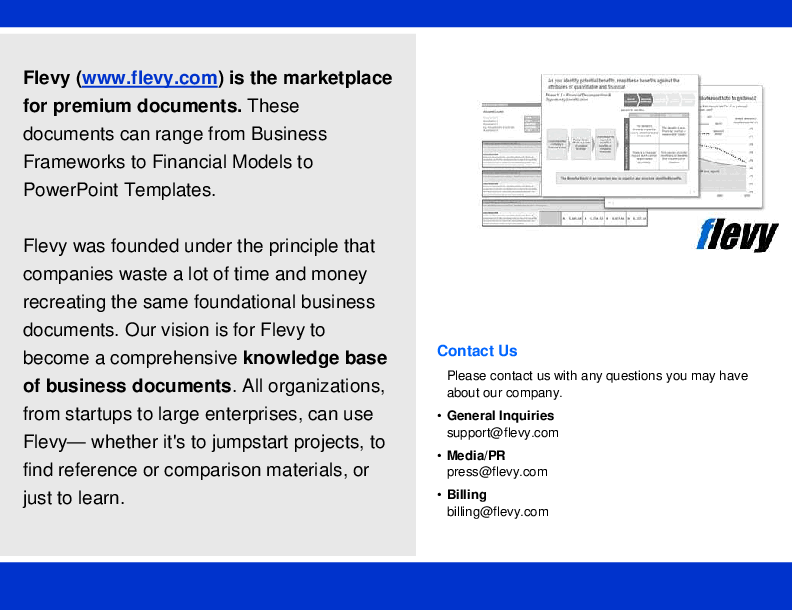Anatomy of an Obeya Room (PDF)
PDF document 1 Pages
VISUAL WORKPLACE PDF DESCRIPTION
OBEYA (from Japanese Ōbeya 大部屋 "large room") originated in the 1990s at Toyota during the G21 (Globe 21st century) Project, while building the Prius. Chief Engineer of the G21 project, Takeshi Uchiyamada "felt that he lacked the necessary authority to make the optimal decisions, and thought he could be overrun by experienced discipline leaders in a way that was not optimal for the project as such".
It is considered a component of lean manufacturing and in particular the Toyota Production System. Analogies have been drawn between an obeya and the bridge of a ship or a war room, and an obeya has been described as "the brain of the system".
The use of OBEYA Rooms has been proven by many companies to be successful. Some examples of large businesses that use such a room are Toyota, Nike, Boeing, and Volvo. These rooms help to promote problem solving among teams, as well as building communication and encourage team building. Silos are sections of companies that only communicate within their specific divisions or departments. Obeya rooms are designed to reduce silos within companies and increase communication.
An OBEYA room gives leaders a clear view of what everyone is working on, as well as why and how. They also can see how their own department's efforts support or hinder their colleagues.
This document helps you understand briefly all relevant concepts related to this important component of LEAN manufacturing "OBEYA".
The one-page PDF document, as a poster, can be used as a fast-training material for your team in the context of a Project or Program.
Got a question about the product? Email us at support@flevy.com or ask the author directly by using the "Ask the Author a Question" form. If you cannot view the preview above this document description, go here to view the large preview instead.
Source: Best Practices in Visual Workplace, Obeya PDF: Anatomy of an Obeya Room PDF (PDF) Document, RadVector Consulting


